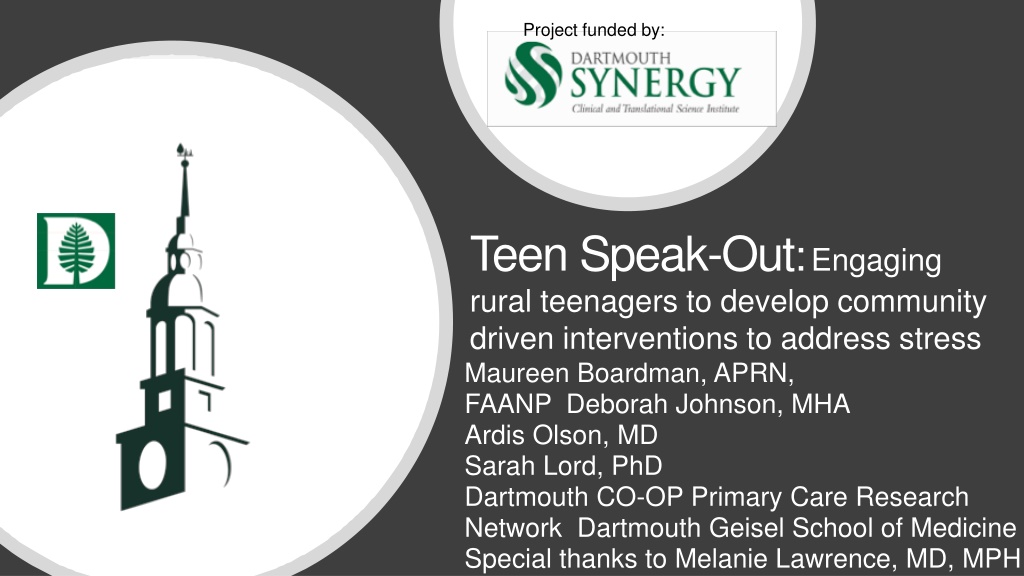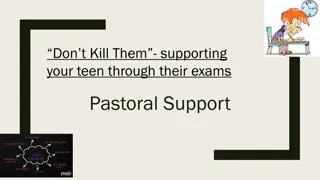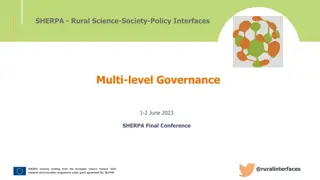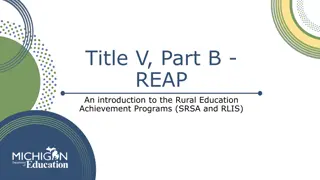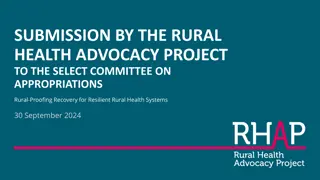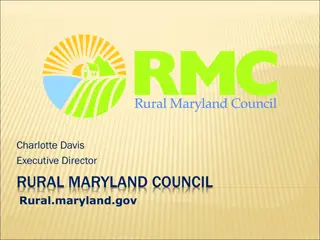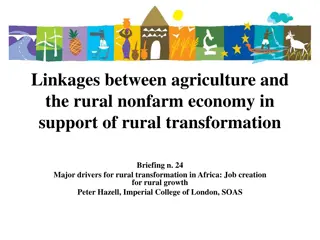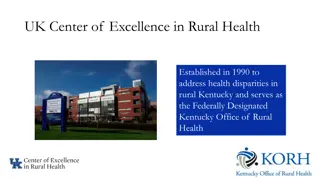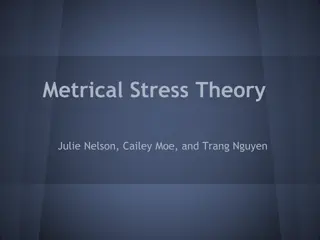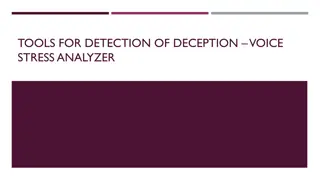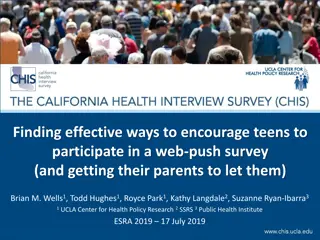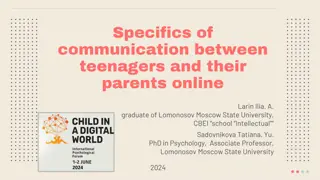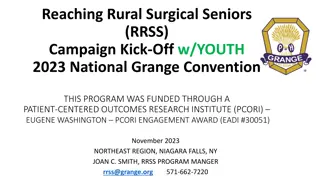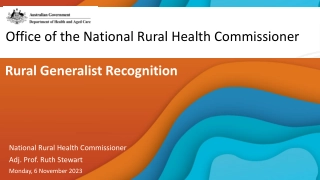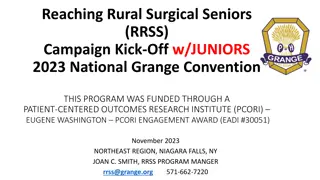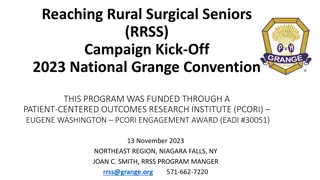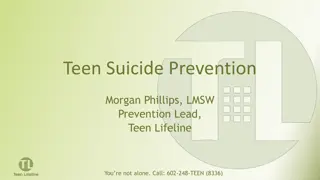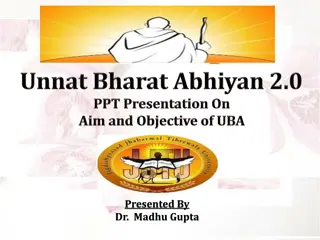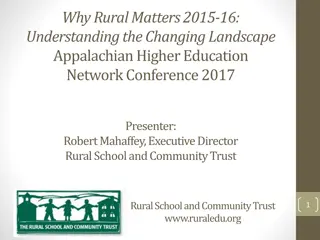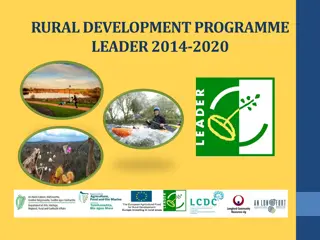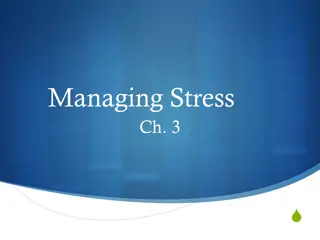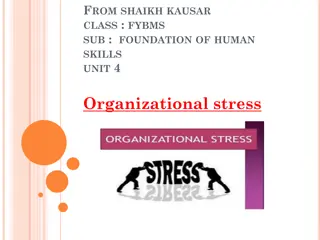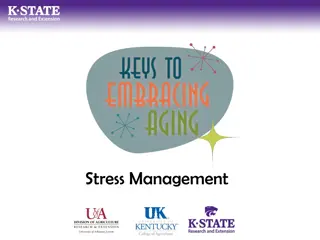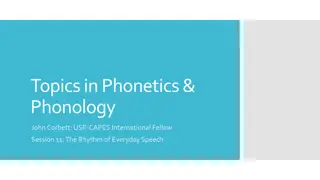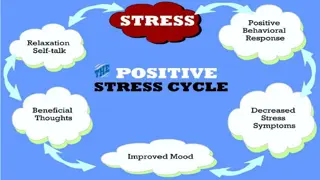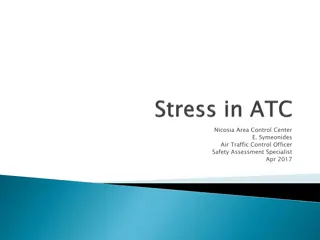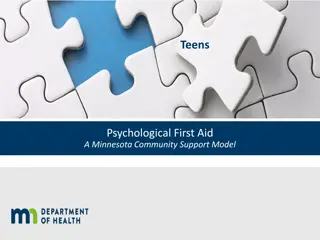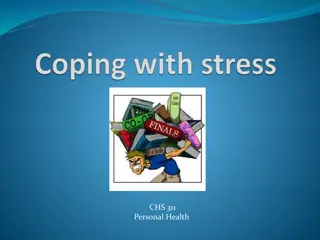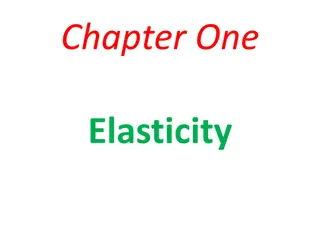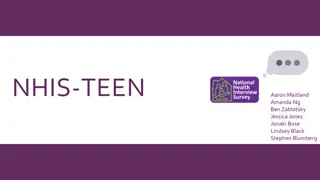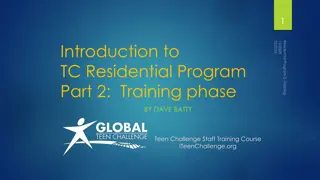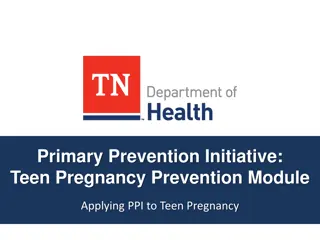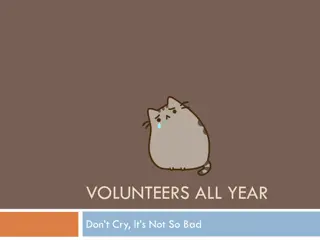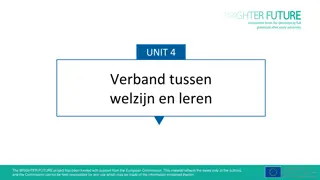Engaging Rural Teenagers to Address Stress: Teen Speak-Out Project
This project, led by a team from Dartmouth Geisel School of Medicine, aims to empower rural teenagers to develop community-driven interventions for addressing stress. By convening Teen Speak-Out dinners and involving a Teen Advisory Board, the project seeks to identify factors contributing to teen stress, design feasible interventions, and create a safe space for discussions. Through engagement events and research phases, the project aims to gather insights and implement tangible solutions to support teens in rural communities facing various stressors.
Download Presentation

Please find below an Image/Link to download the presentation.
The content on the website is provided AS IS for your information and personal use only. It may not be sold, licensed, or shared on other websites without obtaining consent from the author. Download presentation by click this link. If you encounter any issues during the download, it is possible that the publisher has removed the file from their server.
E N D
Presentation Transcript
Project funded by: Teen Speak-Out: Engaging rural teenagers to develop community driven interventions to address stress Maureen Boardman, APRN, FAANP Deborah Johnson, MHA Ardis Olson, MD Sarah Lord, PhD Dartmouth CO-OP Primary Care Research Network Dartmouth Geisel School of Medicine Special thanks to Melanie Lawrence, MD, MPH
Stress is associated with teen risk behavior substance misuse mental health difficulties academic problems poor decision-making diminished physical well- being
OBJECTIVES 1. Identify individual & social factors associatedwith stress among teens, living in rural communities, by convening a series of community Teen Speak-Out dinners in targeted catchmentareas. 2. Design & evaluate the feasibility &acceptability of at least one measurable intervention to address stress among teens that can bereproduced.
Community- engagement & qualitativeresearch Design and Setting Several rural underservedrural communities
Participants Teens, 13-19 years of age Teen Advisory Board (TAB), including teenagers, community member advocates/stakeholders, primary care clinicians, members of the research team
Engagement dinners with prompt questions, discussion,brainstorming StudyPhases Identifyperceptions of approachesto addressingstress Establishment of a Teen Advisory Board (TAB) Design & implementintervention
Fiveevents More than35 teens with some attending multiplesessions Teen Speak-Out Dinners Twoyouth leaders Community stakeholders
Teens want: Safe space for discussing stressors More coordination of school schedules More adult guidance Therapy available at school School mechanism for dealing with bullying "LIFE 101 course
SuggestedInterventions Mindfulness apps or programs Counseling/therapy available at school Free Yoga, dance or Zumba classes at school Discussion groups like Teen Speak-Out School-wide on-line and coordinated schedule Project similar to the Humans of New York or Tumblr site
Intervention Researched apps on stress, anxiety apps rated for Teens on Google Play (Dartmouth Center for Technologyand BehavioralHealth) 7 Cups Anxiety & Stress Pacifica Stress and Anxiety SuperBetter
OutcomeMeasures Teen well-being pre/post intervention Acceptance of intervention Perceived relevance & usefulness Intention to use Pacifica in the future Ideas about strategies for broad dissemination
Results Post-Pacifica Evaluation N 16 83% of students polled felt like learning to how to use Pacifica was easy for them 91% felt that Pacifica helped them accomplish the three goals they set for themselves at the beginning of the process 70% of students reported they planned to continue to use Pacifica in the next 2 months
Limitations Small feasibility pilot Teen assent/parental consent for participation in Phase 2 Commercial product Pacifica (tracking teens data)
Actions to date Full-time counselor/therapist hired through FQHC and placed at local K-12 school, a middle/high school and K-6 Elementary School Significant stakeholder support = expanding network of school-based counselor/therapist positions through FQHC Multiple other FQHC s in Vermont and New Hampshire interested in reproducing FQHC model
Other Actions Teen Speak-Out project recently presented at The New Hampshire Youth Summit (very well received) Dartmouth CTSA (SYNERGY) interested in disseminating the Teen Speak-Out project
Thank you! Questions? Comments?
